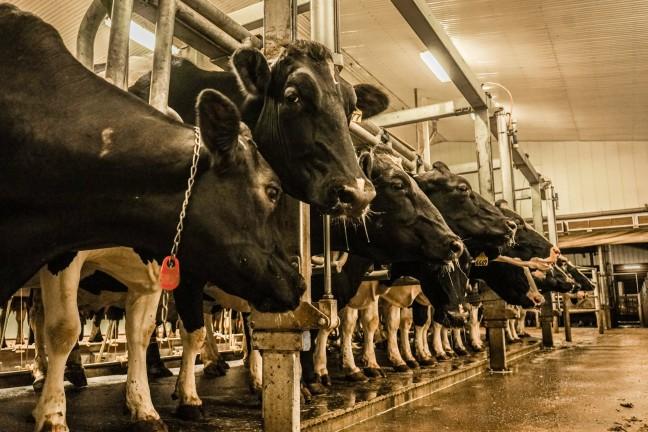Wisconsin Republicans were attempting to speed along a bill that would pass regulatory power over factory farm siting and expansion from state officials to a board of farmers. While this seems like a turn toward a democratic balance of power and shared governance, it has negative implications for partisan politics and the environment.
This bill comes after Gov. Tony Evers amped up agricultural policy. Many frustrated Democrats said this is a Republican response to frustration over the Evers’ administration’s decisions, especially because the bill was introduced so late into the legislature’s session.
“The first I saw this bill was Monday,” said Rep. Mark Spreitzer, D-Beloit, just a few days after the bill was introduced. “Is it your intention to ram this through in the last week or is it more of a conversation starter?”
Even if the bill were to pass, Evers would be unlikely to sign it into law. The haste of this bill was not a major issue and is still not a major issue.
Farmers across US are suffering because of Trump’s trade war with China
What is more troublesome are the implications of such a board. There is nothing prohibiting the formation of a farmer board in the future, and activists, politicians, and some people in the agriculture industry have expressed concerns.
Yet, the bill was actually killed this week by some of its own writers. Wisconsin Dairy Alliance, who helped draft the bill, changed their minds from supporting it. They felt the bill was too rushed and their proposed changes were not being acknowledged. And just like that, the nuances of the political process killed another bill.
Still, the WDA is in favor of some other sort of bill like it — just with the proposed changes — so we can likely expect another in the near future. What can we expect to change?
Farmers have a valuable seat at the table when it comes to the best use of farmlands. In some cases, towns that regulate their own factory farms have less oversight than those regulated by the state’s agricultural department. Still, there needs to be a balance of state and local power.
The authors of the bill claim town boards and local governments do not have the expertise needed to decide whether farms meet the state standards, which often forces them to hire outside experts. They believe that state actors should be responsible for enforcing state standards.
Still, farmers have knowledge about the agricultural process the government may not, which could prove valuable in this decision making process.
If the bill passes, there are implications for environmental oversight. Currently, the state ensures factory farms are up to code on pollution control and management of irrigation run-off. If the farmers of those fields are the ones making executive decisions, it is only natural to wonder if that would be wise.
The organization Clean Wisconsin publicly opposed the bill. Water Program Director Scott Laeser said the organization is extremely concerned with the shift in power from the department to the board and how difficult it would be to implement needed regulatory changes.
Wisconsin’s increasing farm closures spell devastation for the dairy industry
While only farmers themselves can understand the intricacies of running a factory farm, this does not put at ease the logical concerns citizens may have relating to the wellbeing of Wisconsin.
The University of Wisconsin has a sprawling Agricultural Department which engages in tons of research on environmental impact. Perhaps another way to approach this issue is a UW system partnership with both these factory farmers and the State to assess best practices for factory farming. Who is the best fit to have the largest role in regulating agriculture? To what extent can this be a shared governance process? These are all questions the UW system has grown equipped to answer, or at least seek an answer for.
For now, that bill represents many others with respectable content but ill intentions. Hopefully, in due time the state can reach a non-partisan compromise that ensures the wellbeing of the state, farmers and the land all Wisconsinites reside on.
Emma Axelrod ([email protected]) is a sophomore studying political science and journalism.




















